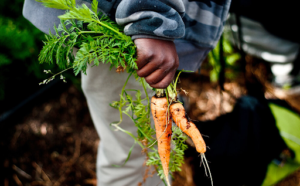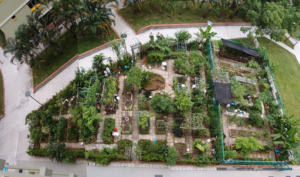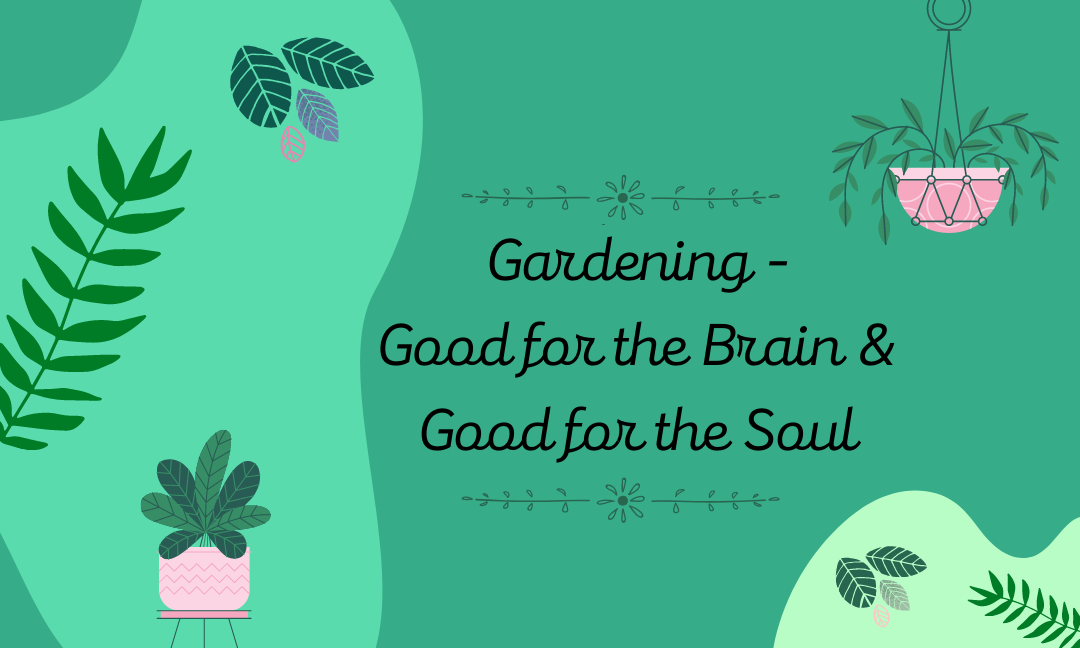Author: Georgia Nicholson
Editor: Connor Fraser
Graphic Designer: Alessia Carpino
Publisher: Rayna Almas
Anyone who’s helped their family out in the garden knows the feeling of watching something grow from a tiny sprout, bloom, and then hunker down for the winter. This gives the plant a unique opportunity at life, but how does it help us? Well, there are some obvious advantages, like a strengthened immune system or increased vitamin D, but how does it help on a psychological sense, on a deeper scale?
Canadians have a very nuanced relationship with land. Almost all Canadians have immigrated to Canada recently enough that they still have a secondary nationality, so a feeling of ownership over this land is often not present in one’s personal identity. Furthermore, First Nations and Inuit peoples had been caring and living in what we call Canada for unfathomable generations before being ripped from their homes and lands. This erased centuries of knowledge, and affected the identity of each and every ancestor of “Turtle Island”. Do you see what I’m getting at here? No matter how you view land ownership, gardening ties one’s personal identity to the land we live on, and fosters responsibility and care towards it. This quotation [1] explains it well:
“In my family, dirt has never been simple. Like so many African-American families, we had a long and complicated relationship with land and soil. For us, having the garden was never just about planting seeds and watching them grow. The garden served as a connection to a painful past, invited us to celebrate our progress, and gestured toward the future. It told a story about what it meant to be Black in America.”

This can also tie back to social cohesion, or how people relate to another, because community is so very intertwined with identity. In one study [2], social cohesion is said to increase with allotment gardening, growing on small plots next to other small plots, which has significant psychological effects. So, what is social cohesion, and what is allotment gardening? Social cohesion is “having ties to one another, or a sense of community”, and allotment gardening is simply gardening in little plots next to one another.

Gardening is a prime way to get outside, get moving and connect with nature. It is a lifelong practice too, since it is beneficial throughout the lifespan, from childhood to old age. It has proven to improve memory for those with dementia, to decrease depression symptoms in those who are depressed, and in one study [4], to significantly increase sociability and decrease loneliness. One thing that is exceptionally interesting but not too surprising is that gardening can majorly reduce eco-anxiety (the anxiety associated with climate change) [3], probably because it forges a relationship with land, which ties into the paragraph above. When you combine all of those mental factors, they mold into finding a place for peace, where you can think sans distractions. Some who begin gardening already have a sense of these findings;, a study from the University of Tokyo [2] shows that over 55% of respondents said that one of their main motivations for beginning gardening was to “take a mental break”. This has become a very promising preventative healthcare strategy.
In urban areas, it has been found to be one of the best ways to interact with nature, due to gardening’s land-efficient and potentially small-scale nature. However, the major issue here is access. In places where most homes are single-family structures, like townhouses, having a backyard or any kind of personal green space is common. For example the UK, where it is estimated that 22.7 million households (87%) have access to a domestic garden, as opposed to New York City, where there is 13.5 square meters of green space per resident, including public green space. This means that because of the population density, it is far harder to create gardens; there just isn’t enough space sometimes. Luckily for Southern Ontario, we sit mostly on the side of the UK, where our population density is pretty low.
But still, how could we create gardens, and promote all of the aforementioned benefits? WRSFG!
Sources:
- Baszile, N. (2021). The Indelible Legacy of Land. National Geographic Magazine, 239(4), 15–18.
- Soga, M. (2017, January 12). Health Benefits of Urban Allotment Gardening: Improved Physical and Psychological Well-Being and Social Integration. MDPI. Retrieved January 29, 2021, from https://www.mdpi.com/1660-4601/14/1/71/htm
- Stanborough, R. M. J. (2020, June 17). Seed, Soil, and Sun: Discovering the Many Healthful Benefits of Gardening. Healthline. Retrieved January 29, 2021, from https://www.healthline.com/health/healthful-benefits-of-gardening#combats-ec oanxiety
- Gardening is beneficial for health: A meta-analysis. (2017, March 1). ScienceDirect. Retrieved January 29, 2021, from https://www.sciencedirect.com/science/article/pii/S2211335516301401


This is fantastic! I am a pedagogical consultant in Waterloo Region. Our organization wants to inspire early childhood organization and educators to garden with children so that they gain the values that come from gardening from an early age and enjoys all of the life long benefits of gardening. It would be wonderful if the author of this post, or someone from WRSFG can contact me as I would like to network and bring forward conversations about gardening with children in the early years. Please reach out! hsimard@conestogac.on.ca